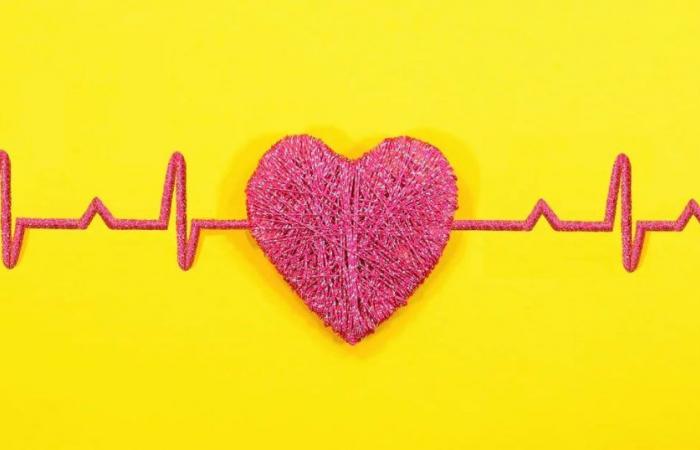One of the diseases that most worries cardiologists, which is related to myocardial infarction, heart failure and stroke, is arterial hypertension (HTA).
This silent disease, which affects almost half of adults in USA already one in three adults in Argentinacan have devastating long-term health effects.
In 2023, the World Health Organization (WHO) published its first report on the devastating global impact of high blood pressure, along with recommendations on how to win the race against this silent killer.
The study showed that the number of people living with hypertension (blood pressure of 140/90 mmHg or higher or who take medication for hypertension) doubled between 1990 and 2019from 650 million to 1.3 billion worldwide.
He Dr. Luke Laffinco-director of the Cleveland Clinic’s Center for Blood Pressure Disorders, exposed six months of myths about blood pressure in statements to AARP, a nonprofit organization dedicated to improving the quality of life and health of people over 50 years of age in the United States.
It does not matter what type of salt is consumed. Any salt that enters our body increases blood pressure. Excess salt in the diet increases blood pressure, causing approximately 30% of the prevalence of hypertension.
High salt consumption also It has been associated with stomach cancer, worsening asthma, osteoporosis (weakened bones), kidney stones, kidney failure, and with obesity, since salty foods cause thirst, which is quenched by consuming drinks with a high sugar content.
According to According to WHO estimates, global sodium consumption is 4310 mg (10.78 g of salt), well above the recommendation of not consuming more than 2000 mg of sodium (5g salt) up to date.
“Many people wonder if replacing table salt with sea salt or Himalayan salt can help them reduce their intake. Let’s not be hasty. It’s still sodium chloride, and it’s still a problem,” said Dr. Sandra Taler, a nephrologist and professor of medicine at Mayo Clinic.
“When it comes to blood pressure, it all comes down to milligrams of sodium more than anything else, and all types raise blood pressure,” Laffin added.
It has been proven that drinking a cup of coffee 30 minutes before taking your blood pressure can cause a temporary increase in blood pressure and lead to an inaccurate reading. But just drinking a cup of coffee 30 minutes before taking your blood pressure can cause a temporary increase in blood pressure and lead to an inaccurate reading. Drinking coffee has no long-term effects on blood pressure, health experts say.
Likewise, the American Heart Association and the American College of Cardiology recommend limiting daily caffeine consumption to 300 mg per day, that is, about three cups of coffee.
It’s known that alcohol causes an increase in blood pressure both in the short and long term. According to Mayo Clinic experts, heavy drinkers who reduce their consumption to a moderate level can reduce their systolic pressure (the top number of blood pressure) by about 5.5 mm Hg and their diastolic pressure (the bottom number) by about 4 mm Hg.
“You are not destined to suffer anything. But you can increase the risk of developing hypertension in the future,” says Laffin, who advises having medical checkups to prevent and anticipate it.
“Things you do from a lifestyle standpoint can help,” Laffin says. This includes maintaining a healthy weight, exercising regularly, not smoking, and following a heart-healthy diet.
When it comes to losing weight, it doesn’t take much to start seeing a positive change in your blood pressure, says Taler.
Even a slight weight loss can move the needle on a blood pressure monitor, so it is a myth that a person needs to lose a lot of weight to have a concrete result in reducing high blood pressure.
People who take drugs to lower their blood pressure should not stray from them. good health habits which are a good diet and frequent exercise. “In essence, they provide synergistic benefits,” says Laffin.
The high blood pressure is the leading risk factor for heart disease and heart-related death, according to the World Health Organization.
Regarding the causes that cause high blood pressure, experts say that are unknown in most patientswhich is why it is called essential or primary hypertension.
The data provided in the last National Risk Factor Survey (ENFR) and the data provided by the RENATA 1 and 2 studies, which indicate that about One third of the adult population in Argentina is hypertensive.
Even some authors, such as those of the PURE study, warn that this prevalence could be even higher. This is because, when the people interviewed in the ENFR are added to those whose blood pressure (BP) was actually recorded, the prevalence increases to practically 50% of the population.
*This article was published Originally at AARP, a nonprofit organization dedicated to improving the quality of life and health of people age 50 and older.


